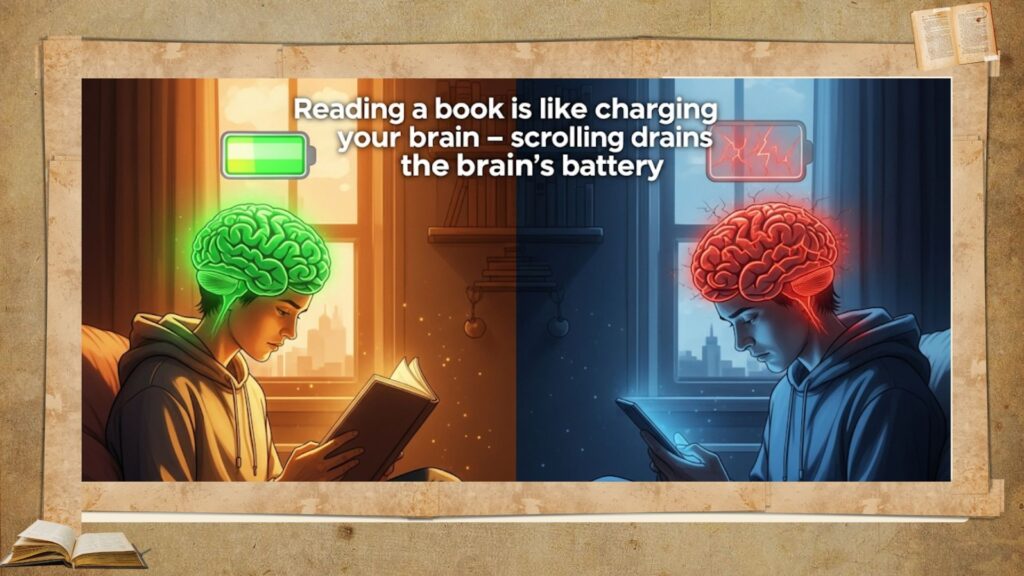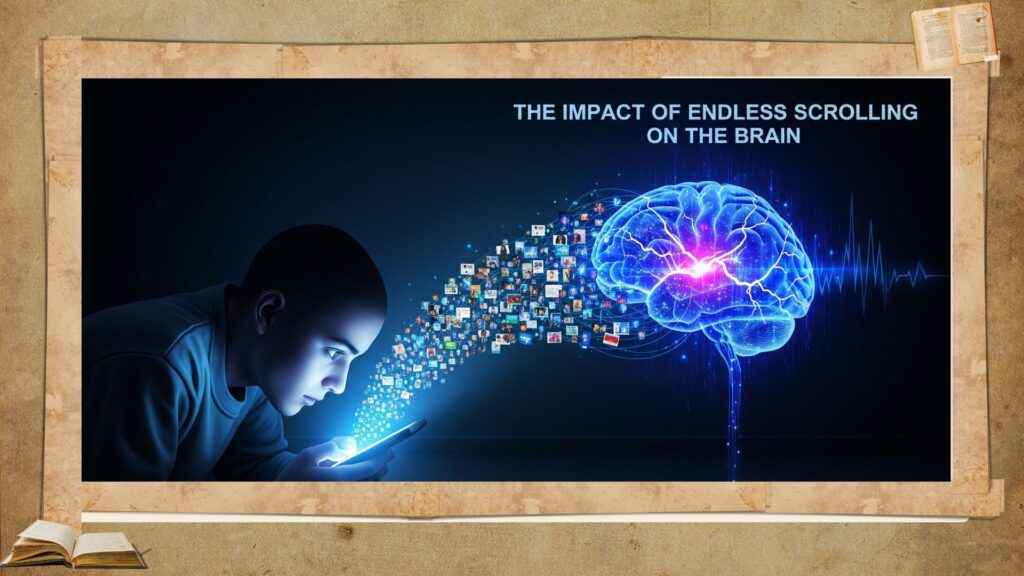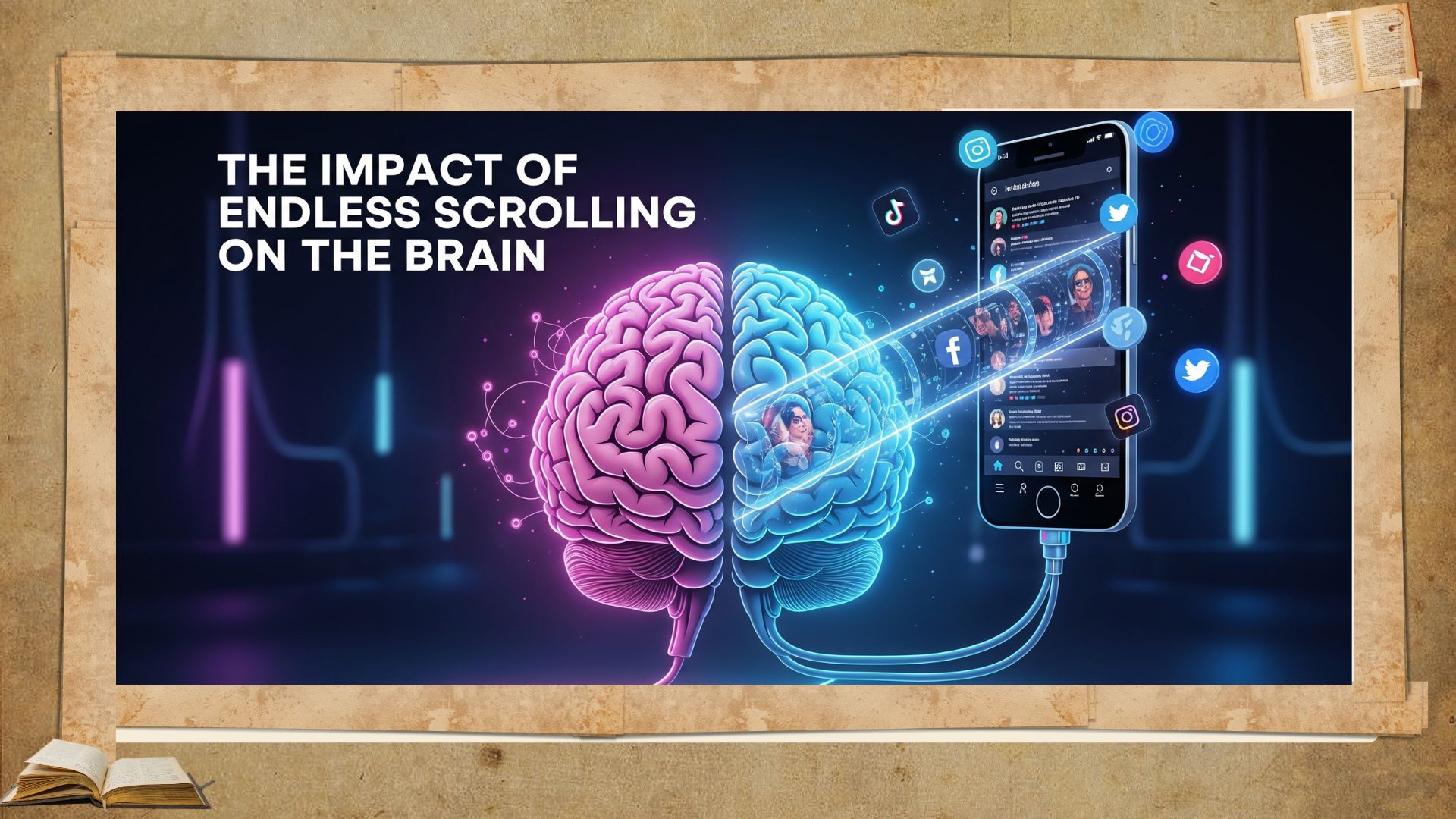The Impact of Endless Scrolling on the Brain
Reading a book is like charging your brain – scrolling drains the brain’s battery.

My work as a reading coach is entirely based on neuroscience- the science of the study of the brain. And this is one area of ongoing research- almost every day, we are understanding the impact of digital environments on our brains better and better.
On the surface of it, digital content is consumed rapidly, in small bites. There is an anticipation of something new at each swipe. Anything seen again is boring- the mind gets tuned to seek constant stimulation even as the drive to dig deeper is compromised. This is what we understand easily. But here’s what’s happening behind the surface.

- Excessive screen exposure, especially the type associated with scrolling, causes measurable reduction or thinning of the brain’s outermost layer—the cerebral cortex—which governs memory, decision-making, and problem-solving.
- This also diminishes working memory- the ability to hold information in the mind, reduces our ability to concentrate, and weakens emotional regulation- the ability to think and respond properly.
- Studies show that our attention span has reduced by 33% in 20 years. This is because of the rush to switch between screens, also called digital multitasking. Habitual browsing of posts, notifications, and advertisements taxes the brain’s prefrontal cortex—the region responsible for sustained attention and executive function.
- As we keep up the scrolling habit- needing the stimulation of new content every minute- we are simply unable to switch to engaging with complex material. The mind is unable to maintain attentiveness. As excessive screen time reduces face-to-face interactions critical for empathy, nonverbal communication, and social learning, the attention gap extends to personal and professional relationships as well.
- Scrolling triggers addictive behaviours. Social media content and certain digital feeds are engineered to maximise dopamine release, mimicking the neurochemical signatures of addictive substances. As the brain adapts to frequent, shallow surges of dopamine, it becomes less sensitive to natural rewards, further fuelling digital stimulation and screen dependency.
When seen in totality, we know why SCROLLING can limit our life experience itself. Take a look at what’s happening around us; there’s a spate of mental health crises and depression. People are making short-term choices; from outsourcing their college assignments to choosing junk food to support night-time bingeing, their choices make them more and more isolated and unready to face the real world. This compromises the one thing that defines the quality of human lives- real, meaningful relationships.
This is just a misuse of technology, which by itself is a boon. There are people who utilise numerous digital platforms to their advantage, plugging in and out as needed. However, habitual scrollers fall prey to the profit-focused online world.
They act out their impulses and feel more nd more uncomfortable in real-life situations. They are not able to have conversations with people who disagree with them and feel offended easily, simply because they have a very low capacity to accurately perceive and respond to others’ emotional states. Any reductions in social coping skills also increase anxiety, triggering potential lifestyle diseases.
Therefore, prolonged time spent on an algorithmic, curated digital environment can play havoc with your brain. It causes the brain structure itself to change and impacts not only your attention span, but also cultivates addictive tendencies, erodes empathy, thereby compromising individual and societal well-being.


